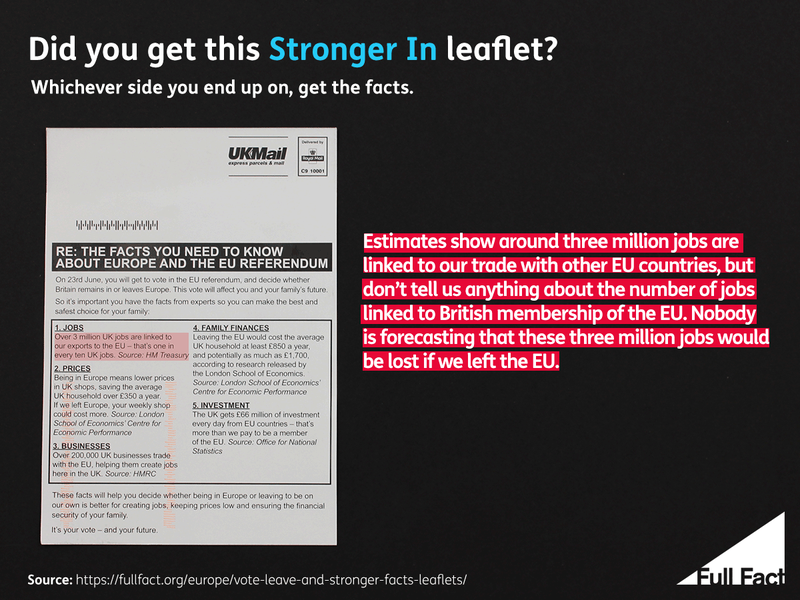This article has been corrected.
Recent analysis by the Treasury has estimated that over three million jobs are linked to UK exports to the EU, which reflects similar estimates in the past. Three million jobs is about one in ten jobs in the UK.
Crucially, it doesn’t tell us anything about the number of jobs linked to British membership of the EU.
The figures try to estimate how many jobs are in industries that export to the EU, and add to that jobs that come about indirectly as a result of exporters’ increased demand for products.
We don’t know how these exports, and so the associated jobs, would be affected if the UK were no longer an EU member. That depends on the trading and other economic arrangements made in negotiations after a vote to leave.
So the three million figure is a statement about the economy as it is, not about what might happen if we remain in or leave the EU. A researcher behind one of the original estimates commented a few years ago that “it’s always been a bit of a false prospectus to say that three million jobs would be lost. It wouldn’t mean an overnight loss of jobs; it wouldn’t mean there would be a loss of prosperity instantly, just that the risks become greater”.
As to what might happen to jobs if we vote to leave, the latest minutes from the Monetary Policy Committee at the Bank of England warn that some jobs might be lost, at least in the short term. That’s in line with what seems to be the view of most other economists who’ve said that leaving the EU would come at some cost to the economy.
This could mean unemployment rises by up to 1.7% in the short term, according to the National Institute of Economic and Social Research, if you accept the assumptions made in their modelling. That's the equivalent of about 500,000 people.
Correction (18 July 2016)
We originally said that a 1.7% increase in unemployment, from NIESR's research, was about 30,000 people. This was incorrect. It was based on interpreting the increase as a percentage rise in the number of people unemployed. It actually respresents an increase in the unemployment rate, compared to another scenario where the UK remains in the EU. The change is closer to 500,000 people for this reason. We're very sorry for the error.
